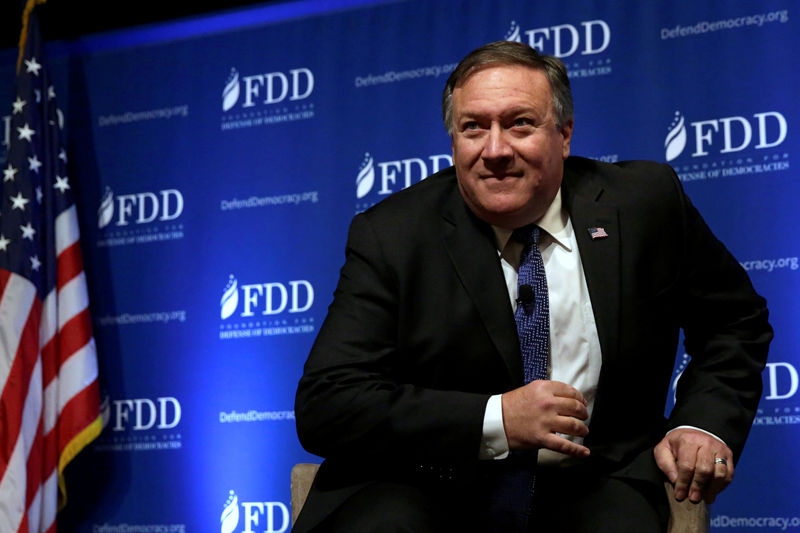SIMI VALLEY, Calif. (Reuters) - U.S. Central Intelligence Agency Director Mike Pompeo said on Saturday he sent a letter to Iranian Major General Qassem Soleimani and Iranian leaders expressing concern regarding Iran's increasingly threatening behavior in Iraq.
Speaking during a panel at the annual Reagan National Defense Forum in Southern California, Pompeo said he sent the letter after the senior Iranian military commander had indicated that forces under his control might attack U.S. forces in Iraq. He did not specify the date.
"What we were communicating to him in that letter was that we will hold he and Iran accountable for any attacks on American interests in Iraq by forces that are under their control," Pompeo told the panel.
"We wanted to make sure he and the leadership in Iran understood that in a way that was crystal clear."
Soleimani, who is the commander of foreign operations for Iran’s elite Revolutionary Guards, refused to open the letter, according to Pompeo, who took over the CIA in January.
Iranian media earlier quoted Mohammad Mohammadi Golpayegani, a senior aide to Supreme Leader Ayatollah Ali Khamenei, as saying an unnamed CIA contact had tried to give a letter to Soleimani when he was in the Syrian town of Albu Kamal in November during the fighting against Islamic State.
"I will not take your letter nor read it and I have nothing to say to these people," Golpayegani quoted Soleimani as saying, according to the semi-official news agency Fars.
Reuters reported in October that Soleimani had repeatedly warned Kurdish leaders in northern Iraq to withdraw from the oil city of Kirkuk or face an onslaught by Iraqi forces and allied Iranian-backed fighters, and had traveled to Iraq’s Kurdistan region to meet Kurdish leaders.
The presence of Soleimani on the frontlines highlights Tehran’s heavy sway over policy in Iraq, and comes as Shi‘ite Iran seeks to win a proxy war in the Middle East with its regional rival and U.S. ally, Sunni Saudi Arabia.
A U.S.-led coalition has been fighting Islamic State in Iraq and Syria and is often in proximity to Iran-allied militia fighting Isis there.
"You need to only look to the past few weeks and the efforts of the Iranians to exert influence now in Northern Iraq in addition to other places in Iraq to see that Iranian efforts to be the hegemonic power throughout the Middle East continues to increase," Pompeo said.
The CIA chief said Saudi Arabia had grown more willing to share intelligence with other Middle Eastern nations regarding Iran and Islamist extremism.
The Israeli government said last month that Israel had covert contacts with Saudi Arabia amid common concerns over Iran, a first disclosure by a senior official from either country of long-rumored secret dealings.

"We've seen them work with the Israelis to push back against terrorism throughout the Middle East, to the extent we can continue to develop those relationships and work alongside them - the Gulf states and broader Middle East will likely be more secure," said Pompeo.